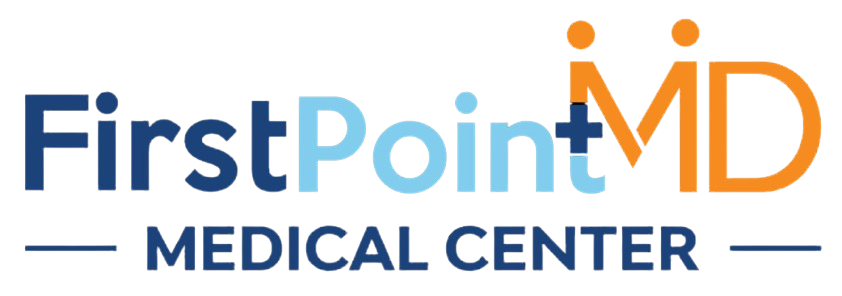In the aftermath of the COVID-19 pandemic, telemedicine has transformed from a convenient alternative to an essential pillar of modern healthcare. At First Point MD, we’ve witnessed firsthand how virtual care has reshaped the patient-doctor relationship, making healthcare more accessible, affordable, and efficient. The pandemic accelerated the digital health revolution, and now, as the world adapts to new norms, telemedicine is not just surviving—it’s thriving.
The Digital Shift in Healthcare: A Permanent Transformation
Before 2020, telemedicine was seen as an emerging tool for select healthcare needs. But the pandemic changed everything. With social distancing mandates and the need for remote care, telehealth became a lifeline—bridging the gap between patients and physicians when in-person visits were impossible.
Now, years later, the data speaks volumes. Over 80% of healthcare providers have incorporated telemedicine into their services. What began as a crisis response has evolved into a permanent fixture in the healthcare system.
Patients have grown accustomed to virtual consultations, digital prescriptions, and remote monitoring. Healthcare systems have adapted to secure, HIPAA-compliant digital infrastructures. As a result, telemedicine is now a mainstay of patient-centered care that aligns with the modern world’s demand for convenience and efficiency.
Telemedicine: Redefining Patient Access and Convenience
One of the greatest advantages of telemedicine is its ability to remove barriers to care. Whether you’re in a rural community or an urban center, telehealth ensures that medical expertise is just a click away.
At First Point MD, we’ve seen how telemedicine enhances access for patients who face mobility issues, transportation challenges, or time constraints. A quick video consultation saves hours of waiting and travel. For patients with chronic illnesses, it means consistent monitoring without the stress of frequent hospital visits.
Moreover, digital health platforms have become more user-friendly and secure, ensuring patient privacy while providing seamless experiences. This combination of accessibility and convenience ensures telemedicine remains a trusted and preferred option for millions of patients.
Cost Efficiency and Value-Based Care
The shift to telemedicine is also transforming healthcare economics. Traditional medical care involves costs associated with hospital facilities, staff, and physical infrastructure. Telehealth minimizes these expenses, allowing both patients and providers to save significantly.
For patients, this translates to lower consultation fees, reduced travel costs, and fewer missed workdays. For providers, telemedicine streamlines operations and reduces overhead, enabling a more efficient value-based care model—where quality outcomes matter more than the quantity of visits.
As healthcare systems continue to embrace digital transformation, telemedicine will play a pivotal role in achieving cost-effective, sustainable healthcare across all demographics.
The Rise of Remote Patient Monitoring (RPM)
One of the most promising trends in telemedicine is the integration of Remote Patient Monitoring (RPM). This technology allows physicians to track patient health data in real time, from blood pressure to glucose levels, using connected devices.
At First Point MD, RPM has enabled us to provide proactive care—detecting issues early, preventing hospitalizations, and improving chronic disease management. The result is better outcomes, higher patient satisfaction, and reduced healthcare costs.
As technology advances, expect RPM to become even more sophisticated with the integration of AI analytics, wearable devices, and predictive health algorithms. The future of healthcare lies in continuous, data-driven patient engagement.
Telemedicine and Mental Health: Breaking the Stigma
Mental health care has been one of the biggest beneficiaries of telemedicine. Virtual therapy sessions have made it easier for individuals to seek help discreetly and comfortably.
Online platforms now provide instant access to licensed therapists, breaking down barriers related to stigma, cost, and accessibility. Patients who once avoided therapy due to fear or inconvenience can now connect confidentially from their homes.
At First Point MD, we recognize that mental well-being is integral to overall health, and telehealth has become a crucial tool in promoting consistent and stigma-free mental health care.
Integration of Artificial Intelligence and Digital Diagnostics
Artificial Intelligence (AI) is revolutionizing telemedicine. From AI-driven chatbots that assist with initial assessments to machine learning algorithms that predict patient risks, the fusion of AI and healthcare is redefining efficiency.
Telemedicine platforms can now analyze patient data, automatically triage cases, and assist doctors in diagnosis—enhancing both accuracy and speed. These tools not only streamline workflows but also help identify patterns that might otherwise go unnoticed.
At First Point MD, we use advanced digital systems that combine clinical expertise with technology, ensuring that every patient receives personalized, data-backed medical guidance.
Telemedicine Regulations and Data Security
As telemedicine expands, data security and compliance have become top priorities. The digital exchange of health information must adhere to strict standards such as HIPAA (Health Insurance Portability and Accountability Act).
Healthcare providers must ensure that all platforms are encrypted, secure, and compliant to protect patient confidentiality.
At First Point MD, we implement robust cybersecurity measures and end-to-end encryption protocols, ensuring that every virtual visit is as safe and private as an in-person appointment. This trust is vital for long-term adoption of telehealth.
Telemedicine Beyond Primary Care
While telemedicine initially thrived in primary and urgent care, it’s now expanding into specialties like dermatology, cardiology, endocrinology, and orthopedics. Specialists can now review imaging, lab results, and medical histories remotely, providing expert opinions without geographic limitations.
Additionally, virtual second opinions have gained popularity—allowing patients to consult with top specialists across the country without leaving home. This trend not only improves patient outcomes but also fosters a more connected global healthcare ecosystem.
The Future of Telemedicine: A Hybrid Healthcare Model
The future of healthcare is not about replacing in-person care—it’s about integrating the best of both worlds. The hybrid healthcare model blends virtual consultations with physical visits, giving patients flexibility while maintaining clinical excellence.
Telemedicine will continue to evolve with technologies like virtual reality for physical therapy, AI-powered diagnostics, and blockchain for secure medical records. As these innovations mature, telehealth will remain a core element of holistic healthcare delivery.
At First Point MD, our mission is to stay ahead of these trends—offering patients accessible, reliable, and technology-driven healthcare solutions that adapt to their evolving needs.
Conclusion: Telemedicine Is the Future of Connected Care
The pandemic may have accelerated telemedicine’s adoption, but its continued success is driven by efficiency, accessibility, and innovation. The healthcare industry has entered a digital era—and there’s no turning back.
As telemedicine continues to evolve, First Point MD remains dedicated to leading this transformation—ensuring that every patient, regardless of location, has access to quality, compassionate, and technology-enabled healthcare.
Telemedicine isn’t just a temporary trend; it’s the foundation of the future healthcare landscape, redefining how we experience care in the modern world.


